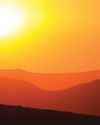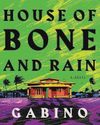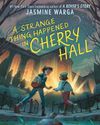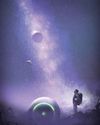
I got my start as a full-time writer when I was 19 years old-so long ago that I penned my first articles with a goose quill on parchment-and over the ensuing decades, I learned a thing or two about both the good and the bad of freelance writing.
When talking with writers who are new to the game, I try to accentuate the positive aspects of the job, such as the freedom to write on topics of personal interest and the satisfaction of helping others through our work.
But there are very real aspects of freelancing that can be frustrating and demoralizing, and sometimes make us question why we stick with it.
I don't like to focus on the negative, but I feel it's important to make new freelancers aware of what they're getting into. My intention is not to scare them off, but to open their eyes to the scammers and cheats and other bad actors who prey on inexperience. Hard lessons all, but hard lessons learned, and lessons I would like to share.
Foremost, it's important to acknowledge that the profession of freelance writing today is evolving at a frenetic pace and that writers entering now are doing so at the best of times and the worst of times.
One illustrative aspect is the broad array of technology available to writers today. Certain platforms and tools can be extremely useful, but an equal number are designed only to separate you from your money.
Examples include the many writing platforms that purport to make you rich via ad clicks and post views and subscription-based tools that claim to fine-tune your grammar and eliminate spelling errors.
This story is from the May - June 2024 edition of Writer’s Digest.
Start your 7-day Magzter GOLD free trial to access thousands of curated premium stories, and 9,000+ magazines and newspapers.
Already a subscriber ? Sign In
This story is from the May - June 2024 edition of Writer’s Digest.
Start your 7-day Magzter GOLD free trial to access thousands of curated premium stories, and 9,000+ magazines and newspapers.
Already a subscriber? Sign In

Writing for a Warming World - Imagining the overwhelming, the ubiquitous, the world-shattering.
Climate change is one of those topics that can throw novelists—and everyone else—into a fearful and cowering silence. When the earth is losing its familiar shapes and consolations, changing drastically and in unpredictable ways beneath our feet, how can we summon our creative resources to engage in the imaginative world-building required to write a novel that takes on these threats in compelling ways? And how to avoid writing fiction that addresses irreversible climate change without letting our prose get too preachy, overly prescriptive, saturated with despair?

Kids' Author Meg Medina Inspires Readers
WD chats with the National Ambassador of Young People’s Literature.

The Horrors of Grief
Whether hot off the presses or on the shelves for years, a good book is worth talking about.

The Mystery of Growing Up
New York Times-bestselling author Jasmine Warga tackles a new genre with her signature blend of empathy for her readers, agency for her characters, and the belief that art is the great connector.

Education
Even if it's not your thing, you're probably familiar with the term dark academia.

A Do-Over Romance
Karin Patton, the first-place winner of the 24th Annual Writer's Digest Short Short Story Awards, shares a funny story about secondchance love and a brief Q&A.

Everyday Wonder
How to mine awe from the mundane

From Ordinary to Extraordinary
Unveil the hidden beauty in the facts and transform your nonfiction with the power of wonder.

Childhood: Our Touchstone for Wonder
How to get in touch with Little You and create big new work for today.

Agent Roundup
22 agents share details, about what kind of writing will pique their interest and offer tips for querying writers...